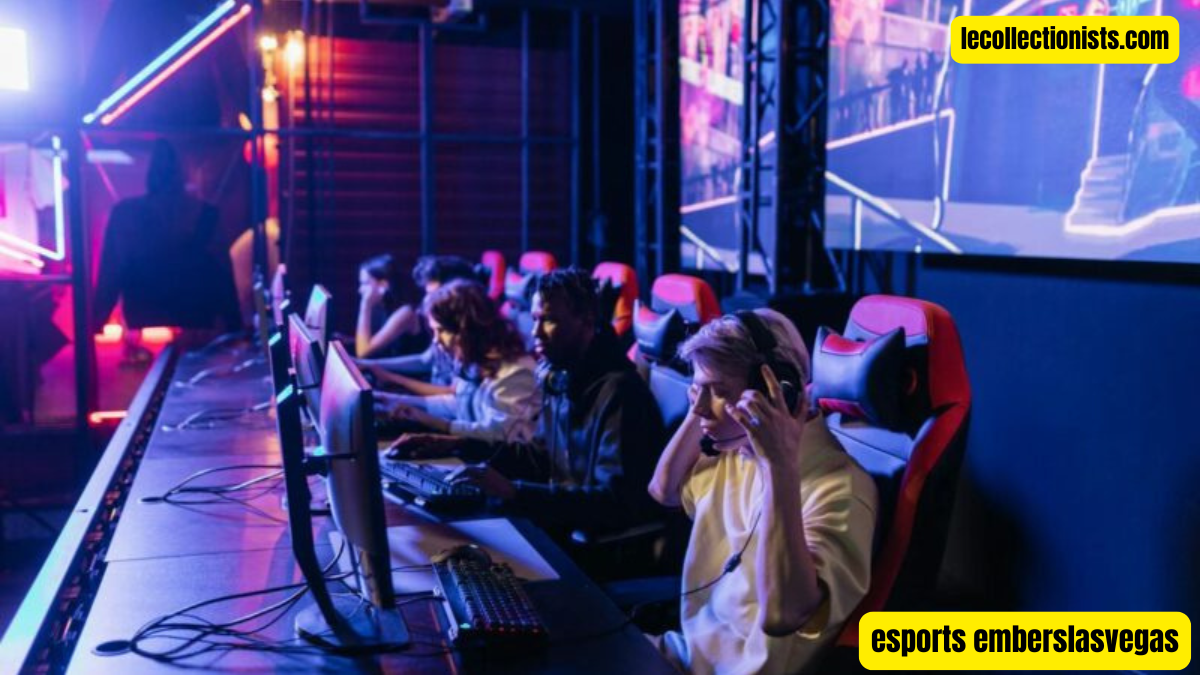Introduction: The Rise of Digital Gaming Archives
Video games have undergone significant transformation since their humble beginnings in the 1970s. From pixelated graphics and simple gameplay mechanics to high-definition worlds and complex narratives, the video game industry has evolved into a multibillion-dollar cultural phenomenon. However, as consoles and technologies advance, older games risk being lost to time. This is where digital archives, such as “Console TheGameArchives”, come into play, ensuring that games are preserved, accessible, and celebrated for future generations.
While the preservation of physical media like books, paintings, and historical documents has always been a priority, the same cannot be said for video games. Games are often tightly tied to specific hardware and software, making it difficult for future generations to experience the classics of the past. The rise of “Console TheGameArchives” has emerged as a solution to this problem, offering a digital vault for games that span across multiple console thegamearchives and platforms.
By archiving games digitally, we can ensure that even the oldest titles remain accessible for future generations to discover, analyze, and enjoy. This initiative is crucial not just for nostalgia’s sake, but for the preservation of gaming culture itself.
The Importance of Game Preservation
Video games, much like any other form of art, represent a piece of history. They reflect the creativity, technology, and societal trends of their time. Without preservation, many of these early works could fade into obscurity, inaccessible to anyone beyond those who lived through the era of their release.
Game preservation serves multiple purposes. It helps protect the history of video games, allowing future generations to learn from, experience, and analyze games that shaped the industry. In some cases, these preserved games can even offer insights into technological advancements, as they demonstrate the evolution of hardware, software, and game design.
Preserving video games also ensures the preservation of cultural significance. Titles like “Super Mario Bros.,” “The Legend of Zelda,” and “Pac-Man” are not just games; they’re milestones in the history of interactive entertainment. By preserving these games, we ensure that future generations can experience them in their original form, offering them a deeper understanding of the artistic and technological progress that led to the video games of today.
What Is “Console TheGameArchives”?

At its core, “Console TheGameArchives“ is an initiative focused on preserving video games across a range of consoles and platforms. It serves as a digital archive, storing games that were once confined to specific hardware but can now be accessed through modern-day technology.
The concept of “Console TheGameArchives” is to provide gamers, researchers, and history enthusiasts with access to games that would otherwise be lost due to the obsolescence of older console thegamearchives. It’s an effort to ensure that the games of today, tomorrow, and yesterday remain available for analysis, entertainment, and education.
The process involves digitizing games from older console thegamearchives like the Atari 2600, Sega Genesis, and Nintendo 64, as well as more recent systems like the PlayStation, Xbox, and beyond. These digital copies can be played on modern devices, such as computers, newer consoles, or even cloud-based services. By storing these games digitally, we are not just preserving the games themselves but also the experiences and memories associated with them.
The History of Video Game console thegamearchives and Their Digital Archives
The history of gaming console thegamearchives is a tale of rapid innovation and technological advancement. Early systems like the Atari 2600 and Nintendo Entertainment System (NES) provided the foundation for modern gaming, but they were also limited by the technology of their time. As newer systems were released, older games became more difficult to play due to the lack of backward compatibility. For example, a game that was designed to run on an NES could not be played on a Super Nintendo or PlayStation without significant effort.
As the gaming industry expanded, the need for preserving these older games became clear. The first attempts at game preservation were relatively simple, with some enthusiasts creating backups of their physical cartridges. However, as technology progressed, these efforts expanded into more complex digital archives, such as “Console TheGameArchives.”
By the mid-2000s, the concept of archiving games took on a more formalized structure. The rise of emulation software, which allows games to be played on computers rather than their original hardware, helped lay the groundwork for broader preservation efforts. Emulators became a tool for gaming enthusiasts to play classic games on modern devices, and as these technologies matured, so did the digital archives dedicated to preserving games.
Today, digital archives such as “Console TheGameArchives” play a crucial role in maintaining the history of video games. They ensure that these games are not only preserved but also accessible to future generations of players and scholars alike.
Technological Advancements in Game Archives
The evolution of game preservation has closely mirrored advancements in technology. Early attempts at archiving games were relatively rudimentary, involving manual backups and preservation of physical media. However, as technology advanced, so did the methods of preservation.
The development of emulation technology was a game-changer for game preservation. Emulators are software programs that mimic the original hardware of a console thegamearchives, allowing games to be played on modern devices. With emulation, older games that were once limited to their original hardware could be enjoyed on a wide range of platforms, from personal computers to smartphones.
Additionally, the advent of cloud storage has revolutionized the way we store and share video games. Rather than relying on physical media, which can degrade over time, digital archives can store games on remote servers. This cloud-based approach makes it easier to preserve games long-term and allows for instant access to games from virtually any device connected to the internet.
Services like “Console TheGameArchives” make use of these advancements, ensuring that older titles remain available for anyone who wishes to experience them, while also preserving the technical integrity of the original games. As technology continues to evolve, how we archive and experience games will continue to improve, providing even more opportunities to preserve gaming history.
The Cultural Impact of Game Preservation
Video games are more than just entertainment; they’re a reflection of culture. The games we play tell us a lot about the time in which they were created. From the early arcade classics to the modern open-world masterpieces, video games mirror the technological, social, and cultural developments of their respective eras.
Preserving these games is essential for understanding the broader context of gaming as a medium. Games like “Space Invaders” or “Tetris” were products of their time, influenced by the technology and societal trends of the late 20th century. By preserving these games, we not only maintain access to the entertainment of the past but also gain a deeper understanding of the technological and cultural shifts that shaped gaming as we know it today.
The preservation of games also contributes to the broader gaming community. Many gamers view older titles as a part of their personal history, representing the games they grew up with or those that inspired them to pursue a career in game development. For game developers, archived games offer a wealth of inspiration, demonstrating the evolution of gameplay mechanics, narrative techniques, and artistic styles.
Challenges and Controversies in Game Archiving
Despite its importance, game preservation is not without its challenges. One of the most significant hurdles is the legal and ethical issues surrounding the archiving of video games. Many games are protected by copyright, which can make it difficult to obtain permission to digitize and distribute them. While some developers and publishers support preservation efforts, others may be reluctant to allow their games to be archived due to concerns over piracy or loss of potential revenue.
Additionally, the technical challenges of archiving games can be considerable. Many older games were designed for hardware that no longer exists or is difficult to emulate. In some cases, developers may have discarded the source code, making it nearly impossible to recreate the game in its original form. These challenges make it difficult for archives like “Console TheGameArchives” to preserve every game from every console.
Despite these hurdles, the gaming community has shown a strong commitment to preserving gaming history. Developers, historians, and enthusiasts continue to work together to overcome the challenges of game preservation, ensuring that games remain accessible and appreciated for years to come.
Future of Game Archives and Console Integration
As gaming technology continues to evolve, the future of game preservation looks bright. The development of more powerful emulators, improved cloud storage systems, and advanced preservation techniques will continue to make it easier to archive and access games. “Console TheGameArchives” and other similar initiatives will likely expand, ensuring that a wider range of games from different consoles is preserved for future generations.
The integration of modern consoles with digital archives could also play a significant role in the future of game preservation. With services like Xbox Game Pass, PlayStation Now, and Nintendo Switch Online offering access to older games, the line between playing a vintage title and a modern game is becoming increasingly blurred. In the future, consoles may evolve to become more integrated with digital archives, offering instant access to an extensive library of games from multiple generations.
Conclusion: Ensuring Gaming’s Legacy for Future Generations
In the end, “Console TheGameArchives” is about more than just preserving games—it’s about ensuring that the history of video gaming is never forgotten. As technology continues to evolve, the need to preserve the legacy of gaming becomes more critical. By preserving these games, we ensure that future generations can experience, learn from, and appreciate the games that shaped the world of interactive entertainment.
As we look to the future, it’s clear that initiatives like “Console TheGameArchives” will play a vital role in the continued growth of gaming as a cultural and artistic medium. Whether you’re a lifelong gamer, a developer, or someone interested in the history of technology and culture, the preservation of video games is something worth supporting.


